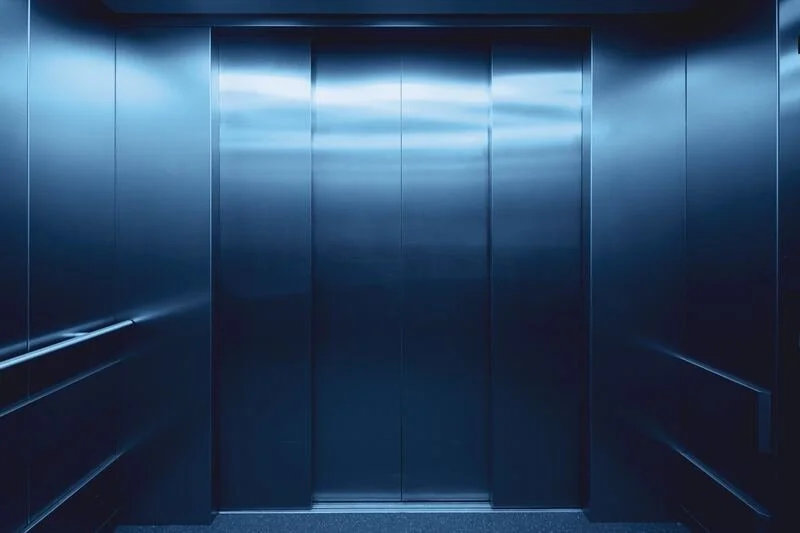Claustrophobia
Claustrophobia is an anxiety disorder defined by an intense fear of enclosed or confined spaces. It is a specific form of phobia where individuals suffering from this condition may feel trapped without an easy way to exit, even if the actual threat is minimal or nonexistent.
The fear can be so intense that it triggers a range of physical and psychological symptoms, including panic attacks, making everyday situations challenging for those affected.
Claustrophobia's Global Impact
A significant number of individuals worldwide are estimated to experience claustrophobic feelings at some point in their lives. While the severity of these feelings varies, for many, it can considerably impact daily activities and mental wellbeing.
Recognising and addressing claustrophobia in increasingly urbanised and populated environments becomes even more crucial. The implications of untreated claustrophobia can be wide-reaching, from navigating bustling public transport systems to undergoing necessary medical procedures like MRI scans.
Understanding Claustrophobia
To effectively address the intricacies of claustrophobia, it's essential to examine its underlying causes, identify common triggers, and recognise its manifestations. By fostering a comprehensive understanding, we demystify this condition and extend empathy and support to those affected.
The Brain & Confined Spaces
The human brain, our centre for emotions and behaviours, is designed to protect us. Sometimes, this leads to strong reactions to perceived threats, like claustrophobia. Key insights include:
Amygdala's Role: Deep within the brain lies the amygdala, driving our fear responses. It activates physiological reactions when threats arise.
Fight or Flight: In response to threats, our body enters a heightened state, causing rapid breathing, increased heart rate, and adrenaline surges.
Why Fear Confined Spaces?: Claustrophobia's origins vary. Some theories point to evolutionary advantages in open spaces, while others cite past traumas or conditioning. The brain may sense fewer escape routes in tight spaces, amplifying anxiety, even without real danger.
Understanding the science of claustrophobia is essential as it underscores that these intense reactions are not a sign of weakness or overreaction. They are deeply rooted in our biology and past experiences, making them valid and deserving of understanding and empathy.
Common Claustrophobia Triggers
A range of scenarios can spark claustrophobia. Some of the most common triggers include:
Elevators or lifts
Tunnels or underground passages
Crowded places where movement feels restricted
Small rooms without windows
Specific medical procedures, like MRI scans
Recognising these triggers is crucial in managing the fear and tailoring coping strategies.
Symptoms of Claustrophobia
When encountering a claustrophobic situation, individuals may exhibit a variety of reactions. Common symptoms include:
Physical:
Shortness of breath
Increased heart rate
Sweating or chills
Dizziness
Panic attacks
Emotional:
Intense feelings of panic or dread
An overwhelming need to escape
Feeling trapped or smothered
Understanding these responses is fundamental for providing appropriate support and intervention.
Causes of Claustrophobia
While the exact origins of claustrophobia can differ from person to person, experts have identified several common causes:
Traumatic Events: A past traumatic experience in a confined space can trigger claustrophobia.
Examples: Being trapped in an elevator or being locked in a small room.
Childhood Experiences: Incidents in early life might set the groundwork for claustrophobic fears later on.
Examples: Being stuck in tight spaces or being left alone in dark rooms.
Genetic and Biological Factors: Some evidence suggests a genetic predisposition or brain chemistry might play a role.
Research is ongoing, but family history can sometimes be a factor.
Learned Behaviour: Observing a family member or close individual with claustrophobia might influence others to develop the same fears.
It's a form of conditioned response.
Daily Life with Claustrophobia
Navigating day-to-day life while grappling with claustrophobia can present unique challenges. The everyday scenarios that many take for granted can become significant hurdles for those affected.
Everyday Challenges for Claustrophobics
For those living with claustrophobia, routine tasks and activities can sometimes become daunting experiences. Some common challenges include:
Utilising public transport, especially during peak times
Attending events or places with large crowds
Staying in unfamiliar or confined accommodations
Participating in certain leisure activities, like cinema viewing or air travel
Undergoing specific medical or dental procedures
Debunking Claustrophobia Myths
In discussing any psychological condition, misconceptions can arise, often perpetuated by popular culture or simple misunderstandings. Addressing these myths head-on is essential for accurate awareness and dispelling stigmas associated with claustrophobia.
Here are some common myths and the truths behind them:
Myth: Claustrophobia is just an overreaction; one should simply face their fears.
Truth: Like any phobia, claustrophobia is a genuine anxiety disorder. Merely facing the fear without proper support or strategies can be counterproductive and traumatic.
Myth: Only traumatic events cause claustrophobia.
Truth: While traumatic events can be a trigger, the origins of claustrophobia can vary widely, including genetic factors, brain chemistry, or early childhood experiences.
Myth: Claustrophobia isn't as serious as other phobias or mental health issues.
Truth: The severity and impact of claustrophobia can vary among individuals, but it can profoundly affect one's quality of life and daily functioning. All phobias and mental health concerns deserve understanding and respect.
Effective Claustrophobia Treatments
While claustrophobia can pose challenges, it is essential to know that effective treatments and support strategies exist. With the right approach, many individuals can manage or overcome their fears, improving their daily functioning and overall wellbeing.
Professional Therapies for Claustrophobia
A range of therapeutic approaches has shown promise in treating claustrophobia:
Cognitive Behavioural Therapy (CBT): This approach assists individuals in identifying and challenging the negative thought patterns linked to their fear, guiding them towards adopting a more positive and realistic mindset
Exposure Therapy: Gradually and safely exposing individuals to their feared situations can help desensitise and reduce the fear response over time.
Relaxation Techniques: Deep breathing, progressive muscle relaxation, and guided imagery can help individuals manage the anxiety and physical reactions triggered by claustrophobic situations.
Self-Help Strategies for Claustrophobia
Beyond professional intervention, individuals can independently practice specific techniques to manage or alleviate symptoms:
Grounding Techniques: Methods like the '5-4-3-2-1' technique can help distract the mind from panic and root one's awareness in the present moment.
Mindfulness and Meditation: Regular practice can improve one's reaction to anxiety-provoking situations and cultivate a sense of calm.
Educate and Prepare: Understanding one's triggers and having a plan in place for challenging situations can reduce the unpredictability and fear associated with them.
Overcoming Claustrophobia: Why Choose Our Clinic
Navigating the intricacies of claustrophobia requires understanding, empathy, and the right therapeutic approach. At Resilient Wellbeing Clinic, we take pride in offering a haven of support and expert care tailored to the unique needs of each individual.
Our Clinic's Tailored Approach
Our commitment to excellence is unwavering, and our approach is holistic:
Personalised Treatment Plans: We understand that every individual's journey with claustrophobia is unique. Therefore, after an in-depth assessment, we design a tailored plan that aligns with your specific needs and goals.
Experienced Professionals: Our clinical team consists of highly qualified and compassionate psychologists and therapists with extensive experience treating phobias. Their expertise ensures you're in capable hands.
A Safe Space: We have created an environment where you can feel completely comfortable. From the moment you step into our clinic, we aim for you to experience a sense of calm, trust, and reassurance.
Starting Your Treatment with Us
Seeking help is a courageous step, and we endeavour to make the process as seamless as possible:
Step-by-step Process: Simply access our user-friendly booking scheduling system on our website. The system will guide you through selecting available slots for a free 15-minute initial consultation, ensuring a seamless experience without needing back-and-forth communication.
What to Expect: After booking through our scheduling system, our clinical director will call you for a free 15-minute initial phone consultation at the selected time. During this session, he will assess your concerns and recommend the best-suited practitioners for your needs. Confidentiality and empathy remain our top priorities.
By seeking assistance at our London clinic or through our online therapy sessions, you are taking a proactive step towards understanding, managing, and overcoming your claustrophobia. Whether in-person or digitally, we are here to support you every step of the way.
Embracing a Claustrophobia-Free Future: Our Commitment to You
Navigating life with claustrophobia can feel isolating, but it's essential to remember that you are not alone in this journey. Our clinic stands as a beacon of understanding and empathy, recognising each individual's unique challenges.
We wholeheartedly encourage anyone grappling with this phobia to reach out and seek the support they deserve. With the right interventions and a compassionate approach, claustrophobia is treatable, and a brighter, more liberating future is attainable. Let us join you on this path towards healing and renewed confidence.
Please get in touch with us to learn more about therapy for claustrophobia or schedule an appointment for a free initial consultation.
Therapy for Claustrophobia: Frequently Asked Questions
What is claustrophobia?
Claustrophobia is a specific phobia involving an intense fear of enclosed or confined spaces, such as lifts, tunnels, small rooms or crowded enclosed areas where it feels difficult to exit. This fear can trigger strong physical symptoms, like a racing heart or breathlessness, and can lead to avoiding situations that feel tight, enclosed or trapping.
What are common symptoms of claustrophobia?
Common symptoms of claustrophobia include rapid heartbeat, shortness of breath, sweating, dizziness, shaking, and overwhelming urges to escape or avoid confined spaces. Many people also describe feeling trapped, panicky or as if they are about to lose control. These reactions can be very distressing but are understandable responses to perceived threat.
How can therapy help with claustrophobia?
Our psychologists use evidence-based approaches, including CBT, graded exposure and mindfulness strategies, to help you understand what maintains claustrophobia and develop tools to manage it. Together, you will work on gradually facing feared situations at a manageable pace, learning to regulate panic symptoms and reduce avoidance so that everyday activities feel more possible again.
Is therapy for claustrophobia available online?
Yes. We offer therapy for claustrophobia both in-person at our Wimbledon clinic and securely online across the UK. Many people find online sessions helpful when travel itself feels challenging, and your psychologist will adapt exposure and coping strategies to fit your circumstances.
How long does therapy for claustrophobia take?
The length of therapy varies depending on your needs, severity of symptoms and goals. Many people benefit from weekly sessions over a few months, with the option to continue longer term, if needed. Your psychologist will review your progress regularly and adjust the treatment plan to meet your needs.
How do I get started with therapy for claustrophobia?
Book a free 15-minute consultation with our Clinical Director to discuss your needs and be matched with the most suitable psychologist on our team. In-person sessions are available in Wimbledon, and we also provide online therapy UK-wide.


